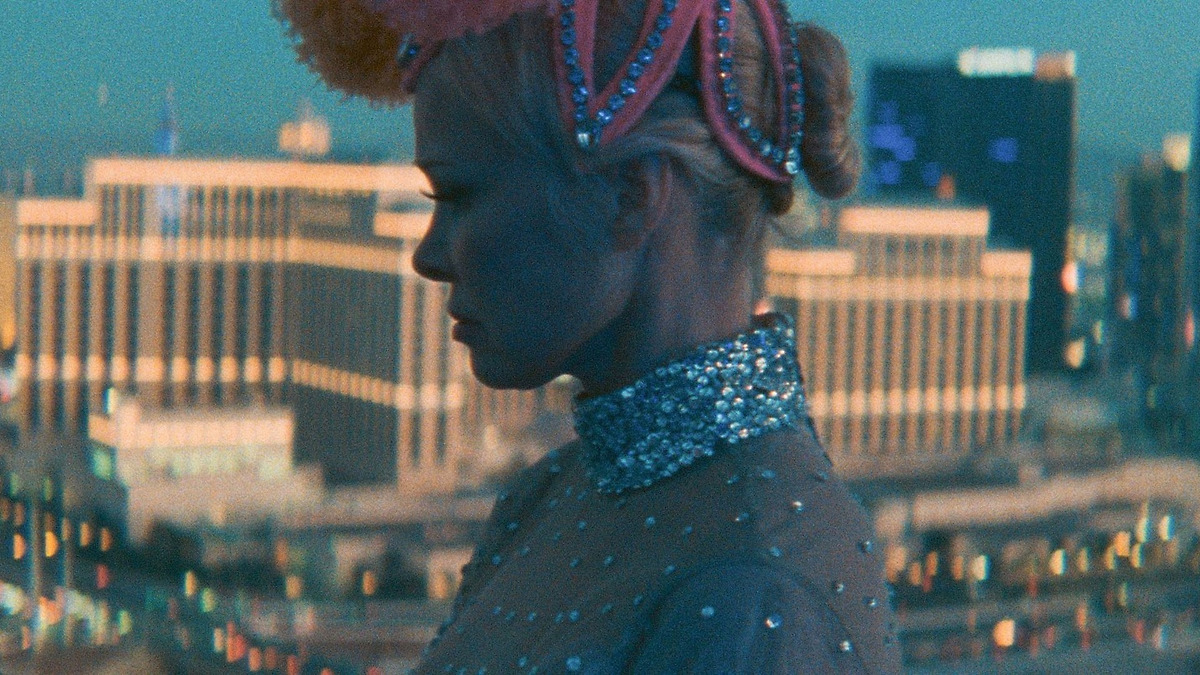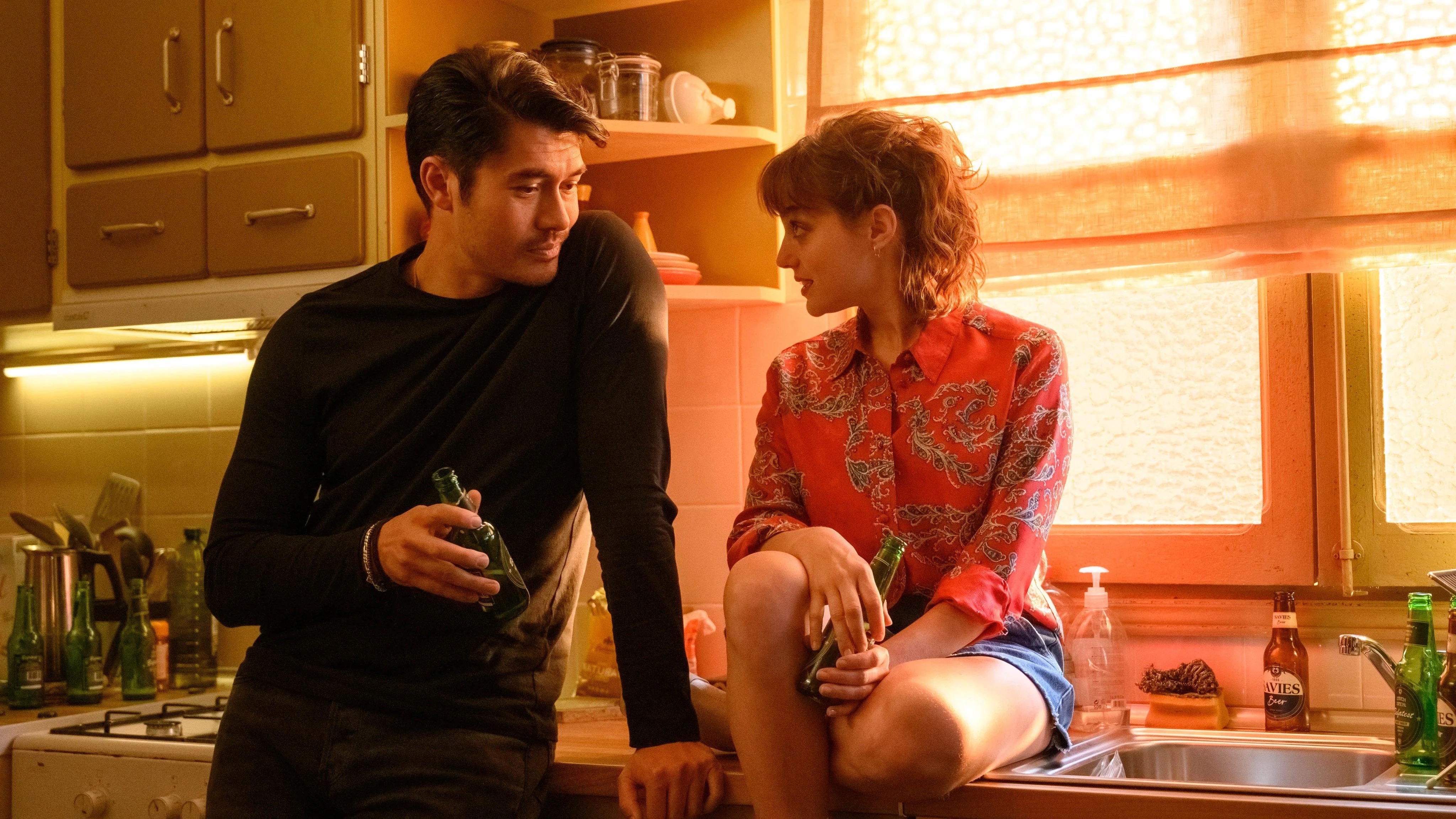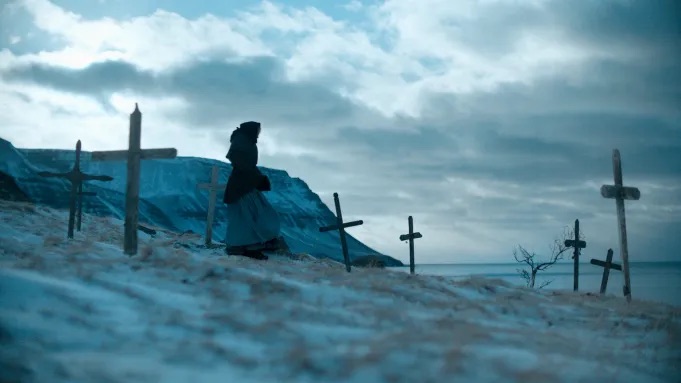TIFF Digest: Part 6
The Last Showgirl
A seasoned showgirl must plan for her future when her show abruptly closes after a 30-year run.
The Last Showgirl features a cast of many familiar faces orbiting around a lead performance from Pamela Anderson, an unlikely center of gravity for a festival-running, dramatic film. Directed by Gia Coppola (yes, from that Coppola family), the film follows Shelley (Anderson), a veteran Vegas showgirl who is on the cusp of a midlife transition. The show she has been dancer for in Sin City is shutting down and having its final curtain call after her being a fixture of the show for 30 years. The film is about beginnings and endings, how one thing doesn't necessarily begin as soon as another ends and how our lives can flash by quickly as well as stall or pause without notice. The Last Showgirl is by all accounts an independent film made for a small budget by filmmakers who are passionate about the material and its characters. The film has great atmosphere – every room and location feels lived in and real (probably because they are). Some of the writing felt either a little too on the nose or a bit thin at times, but the film's pacing and tight runtime helped keep me engaged the whole time. In many ways, The Last Showgirl would make for an interesting double feature (companion piece / palate cleanser) with The Substance; both films, while diametrically opposed in their design and tone, are reckoning with similar themes of how aging and beauty and the impossible pressures of being a woman and maintaining one's youth. Like Demi Moore's performance in The Substance, Anderson hands over her entire self, the good and the bad, the highs and lows, and the full array of triumphs and baggage from her life and career in service to the story. There is a depth of character and internalization that is omnipresent with her performance as Shelley that would certainly not be present for another actress. The film asks a lot of her, and she rises to the occasion and delivers an honest and heartfelt performance. Watching her work through each scene, I greatly admired her courage and transparency and was particularly impressed by her acting chops considering she's put in a position to hold the screen acting opposite a cast of high-caliber actors. Void of vanity and presented with a lack of varnish, The Last Showgirl is immersive and affecting.
Daniela Forever
A man struggling to come to terms with the sudden death of his girlfriend in an accident six months prior signs up for a sleep trial that allows him to reconstruct his life with her through the use of lucid dreams.
Pairing science fiction with romantic drama is a combination that is easy to sign up for, hard to unsubscribe to, and usually underwhelming. Like so many attempts before it, Daniela Forever is built on an interesting premise but loses its focus once the soft sci-fi mechanics at work overpower the emotional stakes of the film. I think these types of films often struggle to pull together a worthwhile payoff looks like, which perhaps says more about audience expectations than it does the tropes of the genre. To be fair, romantic dramas don't have to end happily – in fact, sometimes sadder is better. What doesn't ultimately work in Daniela Forever is easy to feel but hard to describe. I guess my issues with the film are related to the the more basic components of the storytelling itself rather than the fringier genre liberties taken by director Nacho Vigalondo. Like so many other films working in this mode, Daniela Forever tries to overexplain its premise early on so it doesn't have to later. The problem is its initial explanation is somewhat convoluted (which is fine until it's not fine). My biggest issue is the manipulative quality to the word-building and metaphysical misdirection. I'm all for a film working to intentionally keep its audience off-balance, but I'm usually against that practice when it is either overused and/or abused for the sake of dramatic reveals and gotchas. Just because Nicholas (Henry Golding) descends into greater confusion as the film goes along doesn't mean the audience should feel the same way. Just because the flimsy nature of reality within a dreamscape can make for playful or heartbreaking turns doesn't mean the ride necessarily goes anywhere interesting. It's difficult to parse out whether the pieces of this Daniela Forever don't come together for one reason or another, and I think it's safe to say it didn't coalesce for me for a myriad of reasons. Despite it all, I still encourage those who have a hard time passing on this brand of sci-fi + romance to seek out the film – it could work better for others than it did for me.
The Damned
Winter 1862. In the midst of the Civil War, the US Army sends a company of volunteer soldiers to the western territories, with the task of patrolling the unchartered borderlands. As their mission ultimately changes course, the meaning behind their engagement begins to elude them.
Roberto Minervini's Civil War film, The Damned, is designed with the kind of observational minimalism and show-don't-tell commitment that you either get totally wrapped up in or slowly drift away from (depending on your storytelling preferences). It's the sort of singular artistic exploration that can only be expressed through film, where each scene is so loosely connected together that the story begins to feel.... nearly real. Every character remains nameless to the audience, but they are memorable for their faces, their conversations (or lack thereof), and the obstacles they encounter along their journey. In that way, it has something in common with Christopher Nolan's Dunkirk. However, The Damned goes the extra mile in forcing its audience to accept less than they may typically expect from their big-screen storytelling; the details are stripped down to the point of being nearly naked. There is a lot less to hold on to than some viewers might found worth their while after the two hours of investment. The Damned is somewhere between a meditative war movie, an unforgiving western, and a moody art film. It reminded me of what I bet Terrence Malick would do today if he were to make a war movie set on the frontier (but with a lot less meandering). Despite the bare bones approach to the storytelling, I did not find the lack of narrative specifics to be an obstacle for holding my attention. If anything, I felt like my interest in the back half of the film waivered because I felt like the story might have settled for less than it was promising once things began to break down after the first significant conflict (or maybe that's just a byproduct of making a film where it becomes difficult for any character to make it out of this story alive). I don't believe Minervini was interested in making some sweeping decree on the how "war is hell," a somewhat oversaturated thesis that feels a bit tired at this point. No, his film is a subtler, stiller, and leaner. The Damned is a difficult movie to love but an easy one to respect, particularly the rawness of its design and the naturalism of its execution. This film has dirt under its fingernails and is far from a rehash of something we've all seen before.



















